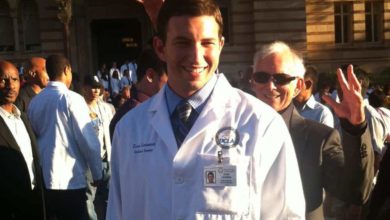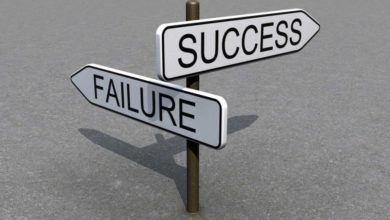Preaksha Garg is a rising college freshman who knew from an early age that she wanted to become a physician. She has been accepted into multiple BS/MD and BS/DO programs. Her remarkable journey, sprinkled with insightful tips, will prepare students with a similar passion on how to proceed with their medical education.
A Youthful Interest in Medicine Begins With a Traumatic Observation as a Child
Beyond my whimsical childhood dream jobs of becoming an astronaut or fashion designer, I had always known from a young age that I wanted to become a doctor. I couldn’t explain why I was drawn to the profession, until as an 8-year-old, I witnessed my grandfather undergo brain surgery after suffering from a Traumatic Brain Injury (TBI). The whole experience was quite scary to me, but my aunt, a doctor, explained his condition to me. Thankfully, my grandfather recovered, and I discovered a newfound interest within me.
I decided to research TBI for the science fair that year, where I learned that just wearing a helmet while riding a bike could prevent serious brain injuries. I was intrigued that the reasoning behind wearing a helmet, something that I used to think was annoying, was actually to protect my brain. This started my curiosity in the functioning of the human body.
If you’re reading this, I’m sure you have your own driving factors that made you want to pursue a career in medicine. I hope my experience can help you in your journey.
Continuing the Drive to be a Doctor While in High School
Going into high school, I was still confident that I wanted to pursue a career in medicine. I kept hearing that I needed two things to be competitive for any good college: good grades and great extracurriculars.
Like most BS/MD applicants (those seeking a combined Bachelor of Science and Doctor of Medicine degree program), I took many AP classes in high school. Out of the twelve AP classes I took, four were STEM-related (Calculus BC, Chemistry, Biology, and Statistics). I would recommend at least taking the STEM AP classes, as those will show a demonstrated interest in the field. However, taking other AP classes in English and Social Studies will show that you’re a well-rounded student, as well as help you improve certain skills like writing before college.
In school, I participated in a variety of activities, including piano, math team, Argonne research (a science and engineering research national laboratory), and Key Club (an international, student-led organization that provides its members with opportunities to provide service, build character and develop leadership).
It’s better to be involved in a few solid clubs, versus participating in many clubs without depth. For example, I was on the math team for three years, and was a state qualifier all three years.
I was also involved in Key Club for three years, and was elected Vice President my senior year. Colleges are looking for you to be a dedicated participant in your clubs. Most competitive students will have a leadership position or some achievement. Therefore, it’s best to join clubs as early as you can (freshman or sophomore year) so you can build up to these.
I also wanted to learn more about the medical field, and was able to do this by gaining first-hand experience. I volunteered at a local hospital passing out books and magazines to patients, briefly volunteered at a nursing home, and shadowed two internists for a few days.
I had the opportunity to intern for one company by testing software for a website catered to participants in clinical trials, and for another company reviewing videos designed to inform patients about various health conditions, self-care, and preventative actions.
I also joined a research club that developed a research project with peers and Argonne scientists. I found out about most of these experiences through talking to friends, family, and teachers about opportunities, and recommend you do the same.
My high school experiences in medicine were widespread. I witnessed some clinical and technological aspects of medicine and was able to conduct research in a team. The time spent in these various extracurriculars allowed me to realize that I was leaning towards the clinical side of medicine. I would also suggest gaining broad experiences in the field, so that you can find out where your interests lay.
The Experiences that Molded a Future Doctor
Application Process
I applied to two BS/MD programs, one BS/DO, and two early assurance programs. Each application had supplemental essays, with one program having an additional essay and three short essay responses, and another having an additional three essays. On top of that, the deadlines for most of these programs are relatively early. The deadlines for the two BS/MD programs I applied to were November 1st, and December 15th for the BS/DO program. With many additional essays for each program and early deadlines, I highly suggest starting these applications ASAP.
Additionally, a lot of the program applications include the typical “Why Medicine?” question. I suggest drafting a response to this question early, perhaps the summer before your senior year. That way, you already have a base for this question when the program prompts come out, and you can cater your generic “Why Medicine?” response to each school’s specific prompt. (e.g., What motivates you to pursue a career in medicine? What would you like the UMKC School of Medicine to know about you that isn’t available in other parts of this application?)
Interview Prep
Most of these programs, if not all, will have interviews. I found out in January whether I was called for an interview or not. To prepare, I googled interview questions for BS/MD programs, for medical schools, and for regular undergraduate schools, compiled them into a google doc, and started thinking about possible responses for each one. It took me a lot of time to retrospect and come up with appropriate answers to all these questions, so I suggest doing it over winter break when you have time, even if you haven’t heard back about interviews yet.
When writing down responses to the questions, I did so in bullet-point format. It’s best to have a few points written for each question and have a general idea of how you would word your answer, instead of memorizing paragraph-like responses for the interview.
Interview Experience
Now, you’ve spent hours perfecting your application and doing your interview prep. It’s come to the last leg of the race: the interview. Each program will have different interview formats, but they generally happen around the same time. I had a one-on-one conversational interview, a group interview, and a multiple-mini interview (MMI), and they occurred from the end of January to mid-February.
Know which types of interviews your programs have and look up tips on how to do well on these different types of interviews. I would also suggest doing mock interviews with friends or family. This will help you get more comfortable with answering questions on the spot and make your responses crisp. Other than that, make sure to make eye contact and smile.
After the interview, you may find yourself overanalyzing your responses and thinking “Why did I say that?” or “I should’ve said that…” I did that too. It always feels like the interview didn’t go as well as you would have wanted. However, there’s no point in dwelling on it. Take a breath of relief, knowing that you did everything you could. In retrospect, I wish I would’ve followed my own advice!
Tips on Getting Accepted into a BS/MD Program
- Come up with a central theme based on the activities you did: When writing my essays, I had to find a way to connect all the things I did in high school. Your experience has to flow. So, I came up with a theme that I could apply to the activities highlighted in my essays and incorporated this theme also when preparing for my interviews.
- Don’t be afraid to ask family or teachers or family friends about opportunities: I cannot stress this enough. I was surprised how much people were willing to help when I simply asked. By talking to my AP Research teacher about opportunities at a university we visited on a field trip, I was able to gain research experience by working with the university’s librarian over the summer.
- Take advantage of all opportunities presented to you: It’s important to stand out. Personally, my school offered the AP Capstone program and a research program with Argonne National Laboratory. I was involved in both and gained valuable research experience. Whether it is in school, your community, or anywhere else, make sure you fully jump on all the opportunities there are, because you never know what they will lead to or what you might learn.
- Start EARLY: I highly recommend getting started on your essays over the summer before senior year. BS/MD applications tend to require more essays than regular college applications. Therefore, it’s best to complete whatever essays you can early before essay prompts come out, like the Common or Coalition Applications’ essays. In fact, if the prompts of other undergraduate schools you’re planning on applying to have been released over the summer, it would be helpful to start on (or even complete) those too.
- Use your summers wisely: Other than my school extracurriculars, the majority of my experiences in medicine were over the summer. The summer is a great time to volunteer, do an internship, get some research experience, or even start on college essays. There are also many summer programs (research and medical) that you can find and apply to. Use your summers to gain exposure into the field and show colleges that you are interested in a career in medicine.
- Do your research on schools: Start researching BS/MD programs before your senior year of high school and get an idea of which programs you might want to apply to. Just like regular colleges, you might have to factor location, cost, and selectiveness when choosing BS/MD programs to apply to. There might be extra requirements for certain programs (e.g., some require SAT subject tests), so it’s important to do your research. Additionally, I suggest not just applying to only BS/MD or early assurance programs. While it is good to have these programs as your goal, they are very competitive. It doesn’t hurt to have a backup plan. Make sure to apply to a few regular undergraduate schools and do your research on those too.
This whole process may seem daunting. I definitely felt that every step of the way. It does take determination and effort to perfect the 20 or more essays you may have to write. It may seem pointless preparing for interviews before even knowing if you’ve been selected for them or not. And, there will always be people who seem smarter or more accomplished than you.
What kept me motivated was knowing my end goal of becoming a physician, serving others, and knowing that I would get there somehow, either through a BS/MD program or by the traditional approach.



